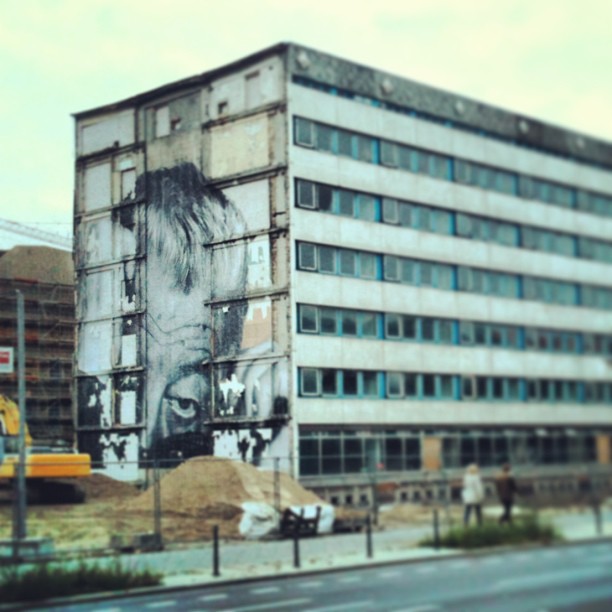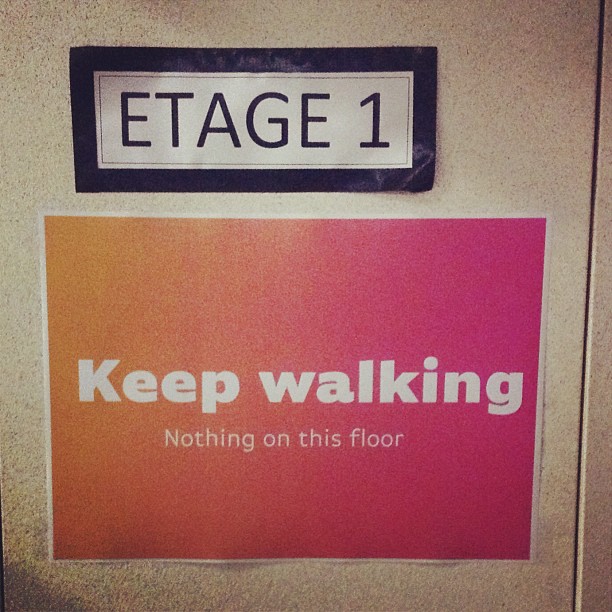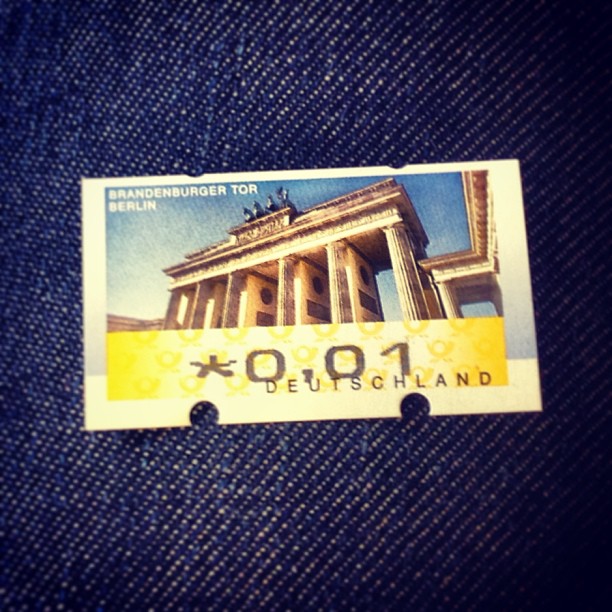Thoughts left in my head after #sxc13
September 25, 2013
I've really enjoyed the Service Experience Camp (or more fashionably #sxc13) in Berlin. Combination of barcamp and traditional conference, full of inspiring people, set in an interesting The WYE space, with a great Kitchensurfing lunch, friendly and responsive organizers and so on and on.
Filled with people of very diverse backgrounds, which were frequently exposed in the discussions (and that's great!). The fact that I enjoyed the most was that people there weren't only surfing on the currently striving buzzword — they were actually thinking pretty deeply about it.

Instead of recapping the whole thing, I'll focus on just a few thoughts I couldn't stop thinking about even many hours after the sessions ended. As it frequently happens, there are more questions than answers.
Academia × “Real life" discussion
I'm currently happy to be a part of starting up a project at our university (focused on bringing design thinking into public services in Czech Rep.). That makes the discussion about the connection between "real life" (~ mainly business) and academia very interesting for me.
However, there are two ways how to think about it — the first one is the tale of academics being slow dinosaurs stuck with their prehistoric thinking and on the other hand mocking the silly designers who never get anything done in a serious way. The other way how to approach this topic is to look for the reasons why the first tale is so popular, why is there such a gap between those two groups of people, whether there are examples of an actual good practice out there and how can those spheres complement each other.
I've been glad that the second approach, though ocassionaly overshadowed by the first one, was very clearly present — even thanks to a presence of many people who actually are a connection between both fields.

Product × Service discussion
In my view, part of the previous problem is that we—as designers—don't care too much about the words we use to describe our work. There are lots (LOTS) of victorious comparisons between archaic product thinking and superevolved service thinking. In spite of that, when asked "what's a product" or, more intimidatingly, "what's a service", we say poetic things like "you can't turn service on and off", "you can't define it, you must do it" or construct a very naive dialectics of both concepts (service is not a product, it's more). It's almost weird that in spite of that many people are easily talked into buying service design—probably because of nice illustrative examples available at hand.
We enjoy joking about those funny product managers who are scared when they hear about being responsible for a service. Blame it on my academic background, but I can't stand hearing those jokes over and over again—it sounds to me like users of one of the smartphone platforms making fun of another. It's a social practice that makes us feel stronger as a group, but on the other hand, it's very primitive. It would be better to understand what product or service design means and how do the people justify using these terms.
There's a confusion between services as a sector of economy (kind of an opposite of an industrial manufacturing of goods) and services as the underlying processes behind every business. The product might be something tangible, something you can move from one place to another, or it might be just a core of a service, the rest being supportive processes. Sometimes it seems that the product is described as a service with only one touchpoint — this definition is the more silly the more time you spend thinking about it. Even when selling hardware, you need to package it, ship it, advertise it, support it, etc. And that's definitely not true only for the end user, but also for any dynamic B2B relationship.
I use the term service basically as name for human oriented business. The product is the value which persuades person to use the service.
It's still not a precise definition (“human oriented business—that's like everything except algorithmic trading, ain't it?”), because there are humans even inside the companies (therefore the "human orientation" mustn't be connected just to the product), business is not the only way of value exchange (e. g. sharing the value through government) and there's no objective measurement of value — it's always subjective (and it's perception can be manipulated).

What can we share?
Some attendees described themselves as fine-tuners of service experience, others posited themselves in a key role in business development. If our positions are so drastically different, what can we share?
When talking with each other we have some kind of mutual understanding. This might be however caused by the fact that we exchange trivial information.
If we can't define something, how can we get better at it? (That's why it's not only an academic obsession, it's a matter of understanding each other in everyday communication.) Or is it so easy that you can just live off your first-hand experience?
From my point of view, there were three main categories of information exchanged:
- Methodologies: Methods of how to prototype, collaborate, communicate or iterate better etc. Often very simple methods. There are many sources, though many methods keep repeating.
- Values: What are the important things we want to see in a service? What do we actually expect from the users when we ask them about their "service experience"? Maybe service design could bring the values back to the economy? And maybe that's a very silly claim, perhaps even just a random byproduct of the current economic situation?
- Case studies, personal stories, hands-on workshops and jams: Combinations of methods and values that were or could be succesful—applied in a specific field (rather than hands-on it's more like brains-on, or post-its-on, hehe). There wasn't a spacetime for a full scale jam, though @adamstjohn is a good evangelizer—I liked his distinction between jams (find the value effectively) and hackathons (make it real effectively).

Documentation by @ADOD_Berlin
Guys doing the documentation of the whole conference were doing it in a nice World Wide Web fashion — it's been strangely fresh (funny, how archaic WWW sounds today). Many different kinds of info—sketches, photos, videos, audio, quotes, maybe even connected to things shared on the web—mashed together in a nice way. Check it out.
I attended their session and was glad to be there, though I can only recommend delving more into journalism—I like ADOD's solid stance not to add their own commentary to the documentation of the creative process, though
a) that's not something journalists do, they are very aware of the difference between description and commentary and
b) just by selecting bits of information that documentarists consider to be important, they're presenting their opinions and values.
Keep up the good work and passion though!
My barcamp session
I've organized a session about unintended (social) consequences of innovation and change—how our thinking directed on a lone user might make us blind to wider social interaction with the services we design.
I made a mistake framing it too much as some kind of a problem that we should "solve" instead of presenthing it just as a phenomenon we should be aware of—while it can turn bad as well as good for the service we work on. It's more about what we define to be good for the service.
I have reworked it for the slideshare—I believe it's more comprehensible than the original. Check it out right here:
Thanks
Thanks to Service Design Berlin for making all this possible and to Cabinet of information and library science at Faculty of Arts of Masaryk University for making it possible for me to be there.
Thanks to all attendees of my session for being there — I enjoyed the discussion. And of course thanks for all the wonderful keynotes and barcamp sessions. It was pleasure to be there!